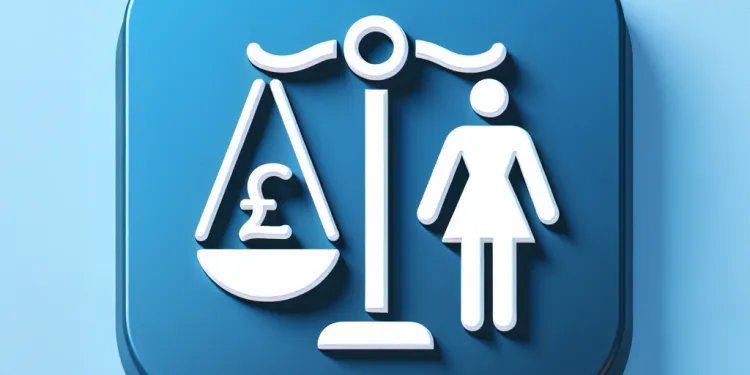
Find Help
More Items From Ergsy search
-

Can Ozempic cause gallbladder problems?
Relevance: 100%
-

What problems is Ozempic known to cause?
Relevance: 96%
-

Can Ozempic affect vision?
Relevance: 72%
-

What is Ozempic?
Relevance: 70%
-

What is Ozempic?
Relevance: 65%
-

Who should not take Ozempic?
Relevance: 65%
-

What are the side effects of Ozempic?
Relevance: 65%
-

Can Ozempic cause serious side effects?
Relevance: 64%
-

What populations should use caution when taking Ozempic?
Relevance: 61%
-

Is Ozempic a form of insulin?
Relevance: 61%
-

Do I need a prescription for Ozempic?
Relevance: 61%
-

What are the common side effects of Ozempic?
Relevance: 60%
-

How is Ozempic administered?
Relevance: 60%
-

Are there any serious risks associated with Ozempic?
Relevance: 59%
-

How is Ozempic administered?
Relevance: 59%
-

Can Ozempic be used for weight loss?
Relevance: 59%
-

Can Ozempic be taken with food?
Relevance: 59%
-

How does Ozempic work?
Relevance: 58%
-

How should Ozempic be stored?
Relevance: 58%
-

Does insurance cover Ozempic?
Relevance: 58%
-

Is Ozempic suitable for type 1 diabetes?
Relevance: 58%
-

Is Ozempic safe for everyone to use?
Relevance: 58%
-
What happens if I overdose on Ozempic?
Relevance: 58%
-

Is there a risk of thyroid tumors with Ozempic?
Relevance: 58%
-

What happens if I stop taking Ozempic or Wegovy?
Relevance: 58%
-

Can Ozempic cause severe gastrointestinal issues?
Relevance: 58%
-

How does Ozempic help with weight loss?
Relevance: 57%
-

What should I discuss with my doctor before starting Ozempic?
Relevance: 57%
-

Can Ozempic lead to dehydration?
Relevance: 57%
-

What should I discuss with my doctor before starting Ozempic?
Relevance: 57%
-

How often do you take Ozempic?
Relevance: 56%
-

Will insurance cover Ozempic for weight loss?
Relevance: 56%
-

What are common side effects of Ozempic?
Relevance: 56%
-

Are there any long-term effects of using Ozempic?
Relevance: 55%
-

Does Ozempic cause allergic reactions?
Relevance: 55%
-

Is nausea a frequent side effect of Ozempic?
Relevance: 55%
-

What should I do if I miss a dose of Ozempic?
Relevance: 54%
-

Can I take Ozempic with other diabetes medications?
Relevance: 54%
-

Are there warnings about using Ozempic with other medications?
Relevance: 54%
-

Does Ozempic have an impact on kidney function?
Relevance: 54%
What is Ozempic?
Ozempic is a prescription medication commonly used in the treatment of type 2 diabetes. It contains the active ingredient semaglutide, which is a GLP-1 receptor agonist. This medication is designed to help manage blood sugar levels in individuals with diabetes by enhancing insulin secretion and reducing excessive glucose release from the liver.
Common Side Effects of Ozempic
While Ozempic is effective in managing blood sugar, it is known to cause some common side effects. Nausea is one of the most frequently reported side effects, often observed when patients first start the medication. Other digestive issues may include vomiting, diarrhoea, and constipation. These symptoms are usually temporary and tend to improve as the body adjusts to the medication.
Serious Side Effects and Concerns
In addition to common side effects, there are more serious concerns associated with Ozempic usage. Some individuals may experience symptoms related to pancreatitis, such as severe abdominal pain, which may also radiate to the back. This is a serious condition and any such symptoms should be immediately reported to a healthcare professional.
There is also a potential risk of developing thyroid tumours, including cancer, though this has been observed primarily in animal studies. Patients are advised to watch for symptoms such as a lump in the neck, difficulty swallowing, hoarseness, or shortness of breath.
Allergic Reactions and Hypersensitivity
Ozempic may cause allergic reactions in some individuals. Symptoms of such reactions include rash, itching, swelling, severe dizziness, and difficulty breathing. If any of these symptoms occur, immediate medical attention is crucial. It is important for individuals with known hypersensitivity to medications similar to Ozempic to discuss their medical history with their healthcare provider before starting treatment.
Long-term Considerations
For those on long-term Ozempic treatment, it's important to consider potential impacts on kidney function. There is evidence to suggest a link between Ozempic and kidney issues, especially when significant dehydration occurs due to prolonged vomiting or diarrhoea. Regular monitoring of kidney function is advisable for patients undergoing treatment.
Conclusion
While Ozempic is a beneficial medication for managing type 2 diabetes, being aware of its side effects is essential. Patients using Ozempic should have regular consultations with their healthcare providers to effectively manage and mitigate potential side effects. Understanding both the benefits and risks can help patients make informed decisions regarding their treatment plan.
What is Ozempic?
Ozempic is medicine doctors give to people with type 2 diabetes. It helps control the sugar in their blood. It works by helping the body make more insulin and stopping the liver from making too much sugar.
Common Side Effects of Ozempic
Sometimes, Ozempic can make people feel sick when they start using it. This can include feeling like you want to throw up, having an upset stomach, or feeling like you need the toilet more or less often. These things usually get better after a little while.
Serious Side Effects and Concerns
There are some serious problems that can happen with Ozempic. Some people might have a lot of pain in their tummy that can go to their back. This might be a sign of something called pancreatitis, which is serious and needs a doctor's help right away.
There is also a chance, mostly seen in animals, that Ozempic can cause lumps in the neck or changes in the voice. If you have trouble swallowing or breathing, tell a doctor.
Allergic Reactions
Some people might be allergic to Ozempic. This can cause rash, itching, feeling dizzy, or trouble breathing. If this happens, see a doctor right away. If you know you are sensitive to medicines, talk to your doctor before using Ozempic.
Long-term Considerations
If you take Ozempic for a long time, it might affect your kidneys. If you feel very thirsty or can't keep water down because you are sick, tell your doctor. It is good to have your kidneys checked while you are taking this medicine.
Conclusion
Ozempic helps many people with type 2 diabetes, but it can have side effects. It is important to talk to your doctor if you have any problems. Knowing about the good and the bad things can help you make the best choice for your health.
Frequently Asked Questions
What is Ozempic?
Ozempic is a medication used to improve blood sugar control in adults with type 2 diabetes, often in conjunction with diet and exercise.
What are common side effects of Ozempic?
Common side effects include nausea, vomiting, diarrhea, abdominal pain, and constipation.
Can Ozempic cause severe gastrointestinal issues?
Yes, some people may experience severe gastrointestinal symptoms, including severe nausea and vomiting.
How does Ozempic affect blood sugar levels?
Ozempic helps lower blood sugar levels by stimulating insulin production and reducing sugar released from the liver.
Can Ozempic lead to pancreatitis?
There is a potential risk of pancreatitis, which is inflammation of the pancreas, in patients taking Ozempic.
Is there a risk of thyroid tumors with Ozempic?
Yes, Ozempic has been associated with an increased risk of thyroid tumors in animal studies, although this risk in humans is not fully known.
Does Ozempic cause allergic reactions?
Allergic reactions are possible, and symptoms may include rash, itching, swelling, severe dizziness, and trouble breathing.
Can Ozempic cause low blood sugar (hypoglycemia)?
Ozempic can cause low blood sugar, especially when used with other diabetes medications that lower blood sugar.
Are there any long-term effects of using Ozempic?
Long-term effects can include potential thyroid tumors and gallbladder disease, but long-term safety studies are ongoing.
Does Ozempic have an impact on kidney function?
Ozempic may cause kidney problems or exacerbate existing kidney conditions, although this is not common.
Can Ozempic cause gallbladder problems?
Yes, Ozempic may increase the risk of gallbladder disease, including gallstones and inflammation of the gallbladder.
Is nausea a frequent side effect of Ozempic?
Yes, nausea is one of the most common side effects experienced by people taking Ozempic.
Can Ozempic lead to dehydration?
Yes, due to gastrointestinal symptoms like vomiting and diarrhea, patients on Ozempic may experience dehydration.
Can Ozempic affect vision?
While rare, changes in vision may occur, often related to rapid improvements in blood glucose control.
What should be done if severe side effects occur?
If severe side effects occur, contact a healthcare provider immediately and follow their recommendations.
How can the side effects of Ozempic be managed?
Some side effects can be managed through diet, gradual dose escalation, and other medications, but a healthcare provider should be consulted.
What is the risk of heart problems with Ozempic?
Ozempic may lower the risk of major cardiovascular events in patients with type 2 diabetes and established heart disease.
Can Ozempic cause fatigue?
Fatigue is not a common side effect, but it can occur in some patients taking Ozempic.
Are there warnings about using Ozempic with other medications?
Yes, Ozempic should be used cautiously with other medications that affect blood sugar to avoid hypoglycemia.
What populations should use caution when taking Ozempic?
Patients with a history of medullary thyroid carcinoma, pancreatitis, kidney issues, or severe gastrointestinal disease should use caution.
What is Ozempic?
Ozempic is a medicine. It helps people with diabetes. Diabetes is when your body has trouble with sugar. Ozempic helps control the sugar in your blood.
Tips:
- Ask your doctor if Ozempic is right for you.
- Use tools like pill boxes to help remember your medicine.
- Have someone help you read or explain the information.
Ozempic is a medicine that helps people with type 2 diabetes. It helps to make their blood sugar levels better. People usually use it with healthy eating and exercise.
What are the usual side effects of Ozempic?
Ozempic can cause some problems in the body. These are called side effects. Here are some common ones:
- Feeling sick in the stomach (nausea)
- Throwing up (vomiting)
- Diarrhea (runny poo)
- Stomach pain (tummy ache)
- Not feeling hungry (loss of appetite)
If you have questions or worries about side effects, you can:
- Talk to your doctor.
- Ask a family member or friend for help.
- Use a picture dictionary to understand better.
Some things that might happen are:
- Feeling sick in your tummy (nausea)
- Throwing up (vomiting)
- Runny poo (diarrhea)
- Tummy ache (abdominal pain)
- Finding it hard to poo (constipation)
If you have trouble reading, you can try using tools like text-to-speech apps. These apps can read the text out loud for you. It's also helpful to ask an adult for help if you don't understand something.
Does Ozempic cause bad tummy problems?
Sometimes, people who take Ozempic can have tummy troubles. If you feel sick or have a hurt tummy, tell your doctor.
To feel better, drink lots of water and eat easy-to-digest foods like rice or toast. Follow your doctor's advice.
Yes, some people might have strong tummy troubles. This can make them feel very sick and throw up a lot.
What does Ozempic do to blood sugar levels?
Ozempic is medicine that helps control blood sugar. It is for people with diabetes. If you have diabetes, your blood sugar can be too high. Taking Ozempic can help lower your blood sugar.
Here are some tips to help you understand:
- Think of your blood sugar like the gas in a car. Too much or too little is not safe.
- Ozempic helps keep your blood sugar just right, like making sure a car has the right amount of gas.
- Always talk to your doctor about how to use Ozempic safely.
You can use tools to help remember to take your medicine. Set a reminder on your phone or ask someone to remind you.
Always ask your doctor or nurse if you have questions. They are there to help you!
Ozempic helps make your blood sugar levels lower. It does this by helping your body make more insulin and by stopping your liver from making too much sugar.
Can taking Ozempic hurt your pancreas?
Some people taking Ozempic might have a problem called pancreatitis. This means their pancreas, a part inside the body, can get swollen or sore.
Can Ozempic cause thyroid lumps?
Ozempic is a medicine for diabetes. Some people wonder if it can cause lumps in the thyroid. Your thyroid is a gland in your neck. It helps control your energy levels.
If you are worried, talk to your doctor. They can help you understand more.
Using tools like pictures or videos can help explain this better. Ask someone to read with you if you need support.
Yes, Ozempic might cause thyroid lumps. This was seen in animal studies. We are not sure if it happens in people.
Can Ozempic make you feel itchy or sick?
Ozempic is a medicine. Sometimes, people might feel itchy or get a rash. This is an allergic reaction. If you feel like this, tell a doctor quickly.
To help understand, you can:
- Ask someone to read with you.
- Use apps to read the text out loud.
- Look at pictures about this topic.
Some people can be allergic. This means they might get sick. They might have a rash, which is red and itchy skin. They might feel itchy or have swollen body parts. They might feel very dizzy or have a hard time breathing.
If these things happen, tell an adult you trust. You can also use tools or techniques like asking for help, using calm breathing exercises, or visiting a doctor.
Can Ozempic make my blood sugar too low?
Ozempic is a medicine that helps with diabetes. Sometimes it can make your blood sugar go too low. This is called hypoglycemia.
Here are some tips to keep your blood sugar safe:
- Eat your meals on time.
- Carry a snack with you in case you feel dizzy or shaky.
- Check your blood sugar regularly if your doctor says you should.
If you feel dizzy, sweaty, or very hungry, tell an adult or a doctor. They can help you feel better.
Ozempic can make your blood sugar go too low. This can happen if you are also taking other diabetes medicines that lower blood sugar.
Can using Ozempic have effects that last a long time?
Over a long time, there might be a risk of thyroid lumps and problems with the gallbladder. Scientists are still studying to find out more.
Does Ozempic affect the kidneys?
Ozempic can sometimes cause problems with kidneys. If someone already has kidney issues, Ozempic might make it worse. But this does not happen often.
Can Ozempic cause problems with the gallbladder?
Ozempic is a medicine. Some people wonder if it can cause trouble with the gallbladder. The gallbladder is a small part inside the body that helps with digesting food.
If you are worried, it is good to talk to a doctor. They can answer questions and help you feel better.
Using a tool like a pill organizer, note-taking app, or calendar reminder can help keep track of medicine and how it makes you feel. This information can be useful for your doctor.
Yes, Ozempic can make it more likely to have gallbladder problems. This includes getting gallstones or having a sore gallbladder.
Does Ozempic often make you feel sick?
Yes, feeling sick to your stomach is a common side effect for people taking Ozempic.
Does Ozempic make you thirsty?
Yes, people taking Ozempic might feel sick or have diarrhea. This can make them lose water and feel thirsty.
Can Ozempic change how you see?
It doesn't happen often, but sometimes your eyesight can change if your blood sugar levels get better quickly.
What to do if bad side effects happen?
If you feel very bad after taking medicine, tell an adult. The adult can help you:
- Call a doctor.
- Call a nurse.
- Go to a hospital.
Here are some tips to remember:
- Always tell someone if you feel unwell.
- Keep a list of your medicines.
- Ask a grown-up to help you understand.
It's important to be safe and get help if you feel sick.
If you feel very unwell after taking your medicine, tell your doctor or nurse right away. Do what they say to help you feel better.
How can we help with Ozempic side effects?
Here are some steps you can take:
- Talk to your doctor: Tell them how you are feeling. They can give advice and help.
- Eat small meals: This can stop your tummy from feeling upset.
- Drink water: Staying hydrated is good for you.
- Rest: Make sure you get enough sleep.
Use apps or tools that help you keep track of how you feel each day. This can help you understand which side effects you have. Always ask for help when you need it.
Some side effects can be helped by eating the right foods, slowly increasing how much medicine you take, or using other medicines. Always talk to a doctor or nurse to get help.
Do people get heart problems from using Ozempic?
Ozempic can help people with type 2 diabetes and heart problems by making it less likely for them to have big heart problems.
Does Ozempic make you feel tired?
Feeling very tired is not something that usually happens with Ozempic, but it can happen to some people who take it.
Can Ozempic be taken with other medicines?
It is important to know if Ozempic is safe to use with other medicines.
Ask a doctor or pharmacist before taking Ozempic with other pills or treatments. They can help if you have questions.
Using Ozempic with some other medicines might be unsafe.
You can use a pill organizer or a medication list to keep track of all the medicines you are taking.
Yes, be careful when using Ozempic with other medicines that change blood sugar levels. This helps stop low blood sugar.
Who should be careful when taking Ozempic?
If someone has had problems like a type of thyroid cancer, belly problems, pancreas issues, kidney troubles, or big stomach problems, they should be extra careful.
Useful Links
This website offers general information and is not a substitute for professional advice.
Always seek guidance from qualified professionals.
If you have any medical concerns or need urgent help, contact a healthcare professional or emergency services immediately.
Some of this content was generated with AI assistance. We’ve done our best to keep it accurate, helpful, and human-friendly.
- Ergsy carfully checks the information in the videos we provide here.
- Videos shown by Youtube after a video has completed, have NOT been reviewed by ERGSY.
- To view, click the arrow in centre of video.
- Most of the videos you find here will have subtitles and/or closed captions available.
- You may need to turn these on, and choose your preferred language.
- Go to the video you'd like to watch.
- If closed captions (CC) are available, settings will be visible on the bottom right of the video player.
- To turn on Captions, click settings .
- To turn off Captions, click settings again.
More Items From Ergsy search
-

Can Ozempic cause gallbladder problems?
Relevance: 100%
-

What problems is Ozempic known to cause?
Relevance: 96%
-

Can Ozempic affect vision?
Relevance: 72%
-

What is Ozempic?
Relevance: 70%
-

What is Ozempic?
Relevance: 65%
-

Who should not take Ozempic?
Relevance: 65%
-

What are the side effects of Ozempic?
Relevance: 65%
-

Can Ozempic cause serious side effects?
Relevance: 64%
-

What populations should use caution when taking Ozempic?
Relevance: 61%
-

Is Ozempic a form of insulin?
Relevance: 61%
-

Do I need a prescription for Ozempic?
Relevance: 61%
-

What are the common side effects of Ozempic?
Relevance: 60%
-

How is Ozempic administered?
Relevance: 60%
-

Are there any serious risks associated with Ozempic?
Relevance: 59%
-

How is Ozempic administered?
Relevance: 59%
-

Can Ozempic be used for weight loss?
Relevance: 59%
-

Can Ozempic be taken with food?
Relevance: 59%
-

How does Ozempic work?
Relevance: 58%
-

How should Ozempic be stored?
Relevance: 58%
-

Does insurance cover Ozempic?
Relevance: 58%
-

Is Ozempic suitable for type 1 diabetes?
Relevance: 58%
-

Is Ozempic safe for everyone to use?
Relevance: 58%
-
What happens if I overdose on Ozempic?
Relevance: 58%
-

Is there a risk of thyroid tumors with Ozempic?
Relevance: 58%
-

What happens if I stop taking Ozempic or Wegovy?
Relevance: 58%
-

Can Ozempic cause severe gastrointestinal issues?
Relevance: 58%
-

How does Ozempic help with weight loss?
Relevance: 57%
-

What should I discuss with my doctor before starting Ozempic?
Relevance: 57%
-

Can Ozempic lead to dehydration?
Relevance: 57%
-

What should I discuss with my doctor before starting Ozempic?
Relevance: 57%
-

How often do you take Ozempic?
Relevance: 56%
-

Will insurance cover Ozempic for weight loss?
Relevance: 56%
-

What are common side effects of Ozempic?
Relevance: 56%
-

Are there any long-term effects of using Ozempic?
Relevance: 55%
-

Does Ozempic cause allergic reactions?
Relevance: 55%
-

Is nausea a frequent side effect of Ozempic?
Relevance: 55%
-

What should I do if I miss a dose of Ozempic?
Relevance: 54%
-

Can I take Ozempic with other diabetes medications?
Relevance: 54%
-

Are there warnings about using Ozempic with other medications?
Relevance: 54%
-

Does Ozempic have an impact on kidney function?
Relevance: 54%


